Exploring Thai Cooking Classes in Bangkok
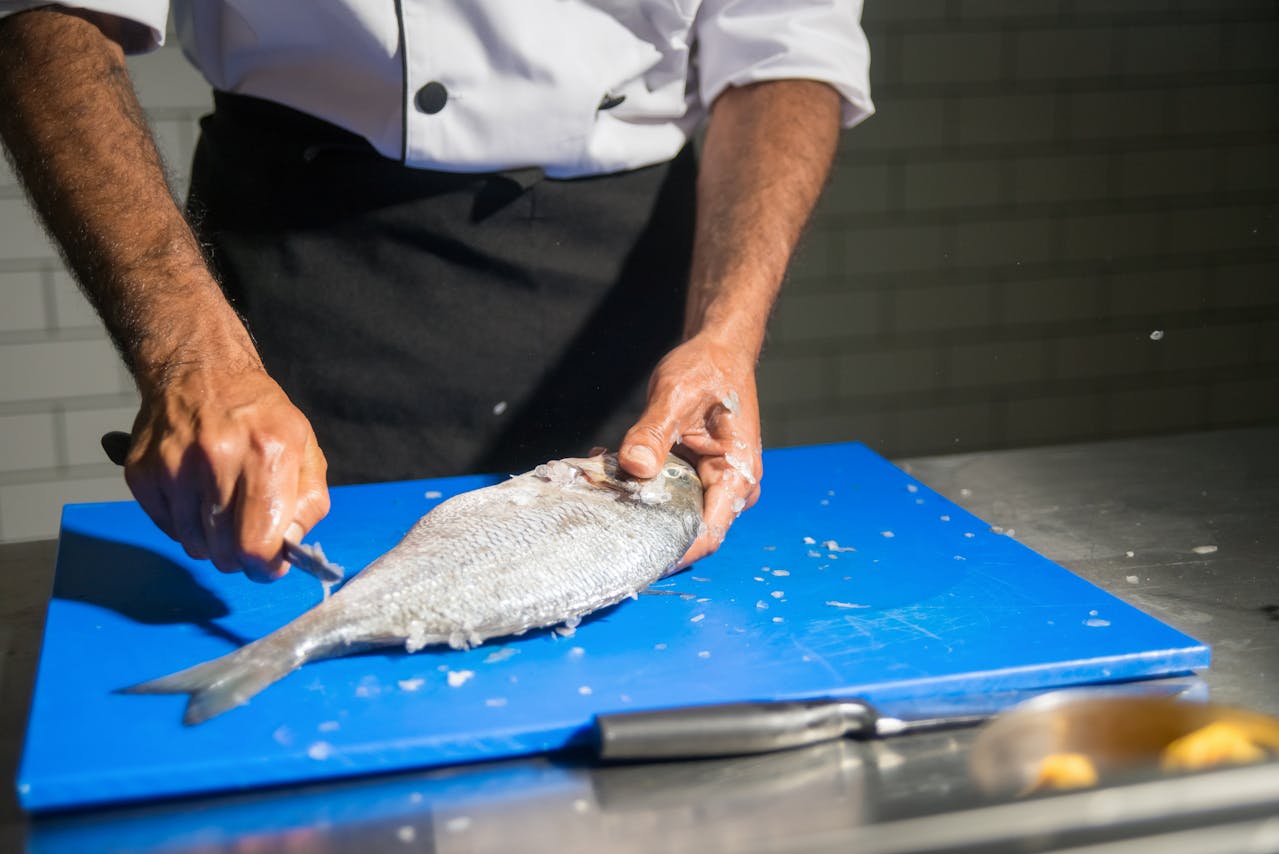
Blue Elephant Cooking School: A Culinary Landmark
The Blue Elephant Cooking School, nestled in the bustling Sathon district, is as iconic as it gets. This place isn’t just about cooking; it’s about stepping into a world where tradition meets innovation. The school is housed in a charming colonial-style building, adding a touch of history to your culinary journey. What sets this place apart is its focus on authenticity while making the experience accessible for all skill levels. You’ll learn to whip up classic dishes like green curry and pad thai, all while understanding the intricacies of Thai spices and herbs. Plus, its proximity to Bangkok’s vibrant shopping scene, including spots like Iconsiam, makes it a convenient stop on your itinerary.
Chef Leez Thai Cooking Class: A Comprehensive Experience
If you’re looking for a hands-on experience, Chef Leez Thai Cooking Class is a must. Located in Bueng Kum, this class starts with a guided market tour where you’ll pick out fresh ingredients. Then, it’s straight into creating a whopping 12 dishes—more than most other classes offer. Think tom yum, mango sticky rice, and papaya salad. The setup is intimate, and the instructors are patient, ensuring you leave with skills you can replicate back home. It’s no wonder this class has been voted the best in Bangkok year after year.
Market Tours and Ingredient Selection in Bangkok
Any Thai cooking experience isn’t complete without a market visit. It’s here that you’ll truly grasp the essence of Thai cuisine. Wander through stalls brimming with colorful produce, aromatic spices, and exotic ingredients. Whether it’s the Chatuchak Weekend Market or smaller local spots, these tours teach you how to select the freshest items. Not only will you learn to cook, but you’ll also gain an appreciation for the cultural significance of these markets in Thai daily life.
Bangkok’s cooking classes aren’t just about food; they’re a gateway to understanding the city’s vibrant culture and traditions.
Discovering Chiang Mai’s Culinary Scene
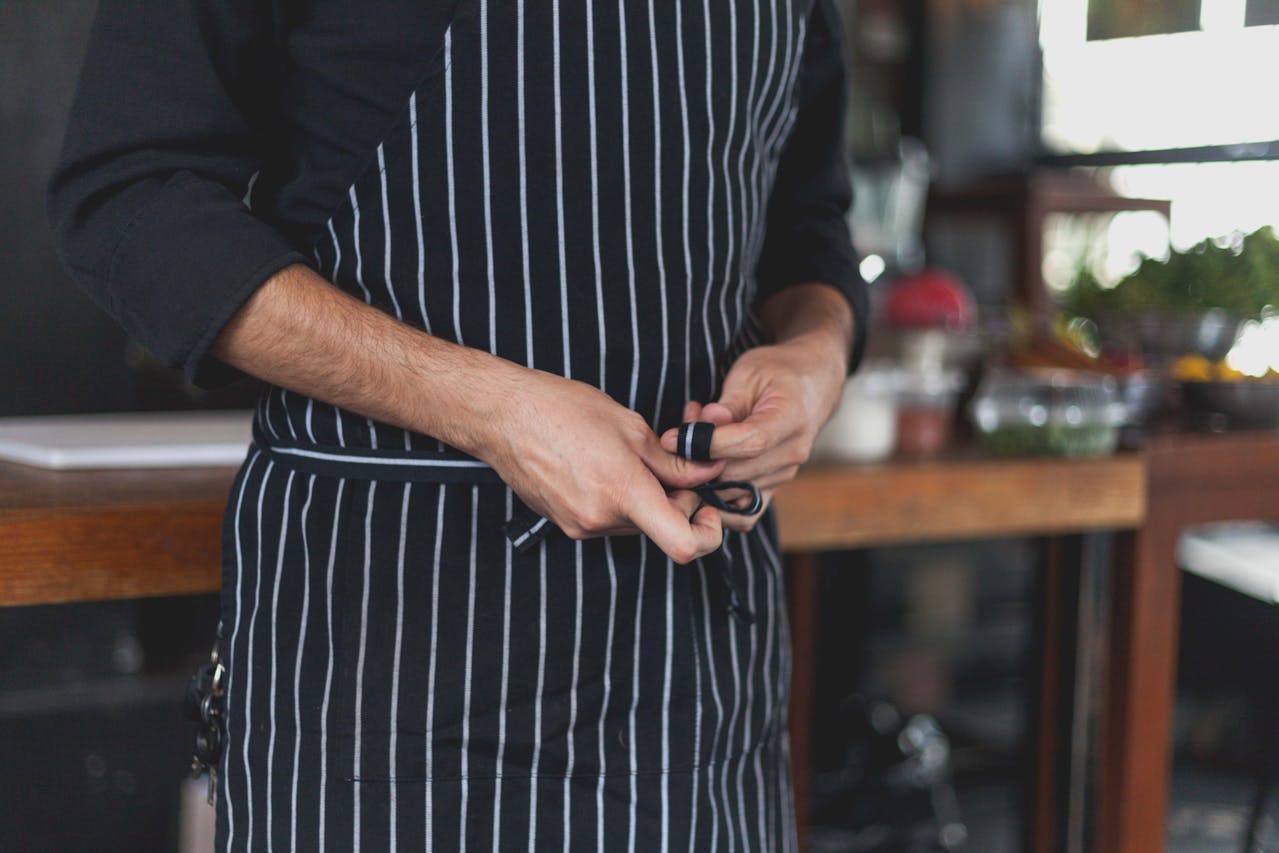
Thai Farm Cooking School: Organic and Authentic
Nestled about 17 kilometers outside Chiang Mai, the Thai Farm Cooking School offers a serene and immersive experience. Surrounded by lush organic farmland, this school allows participants to pick fresh ingredients directly from the garden before diving into their cooking session. This hands-on approach ensures you truly connect with the ingredients. The classes typically include making a main dish, a side, and a dessert like mango sticky rice. Plus, you get a recipe book to recreate the dishes at home.
Pantawan Cooking: A Blend of Tradition and Modernity
Pantawan Cooking stands out with its charming teak villa setting on the outskirts of Chiang Mai. The experience here goes beyond just cooking—it’s about embracing northern Thai culture. A full-day class might include a traditional ‘khantoke’ dinner, a special meal accompanied by live Lanna music. It’s a fantastic choice for honeymooners or anyone looking to add a touch of elegance to their trip.
Cooking with Local Ingredients in Northern Thailand
Chiang Mai’s cooking classes often start with a trip to the bustling local markets. Here, you’ll learn how to select the freshest herbs, vegetables, and spices, which are the backbone of Thai cuisine. The vibrant colors and aromas of the market are an experience in themselves. Afterward, you’ll head to an open kitchen, where you’ll whip up dishes like Pad Thai, green curry, and sticky rice. The combination of market exploration and cooking creates a memorable way to appreciate Thai culture.
Immersive Cooking Experiences in Phuket
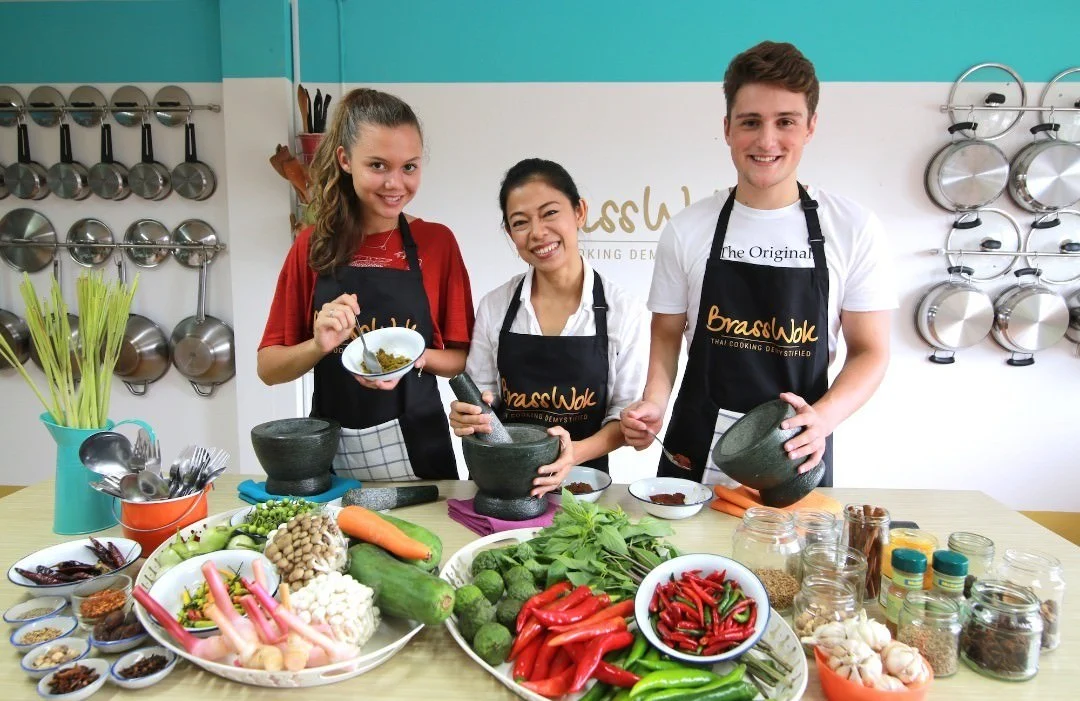
Phuket Thai Cooking Academy: Beyond Cooking
Nestled in a charming village surrounded by lush mountains, the Phuket Thai Cooking Academy offers a mix of traditional and modern Thai culinary learning. Each session kicks off with a visit to a bustling local market where you’ll pick fresh ingredients. Afterward, participants dive into hands-on cooking, preparing dishes like spicy Thai green curry or mango sticky rice. For those looking to try something different, the academy also offers vegetarian options and even lessons in fruit carving—a unique Thai art. A refreshing dip at the nearby Kathu waterfall is the perfect way to end your day.
Fruit Carving and Vegetarian Menus in Phuket
If you’re curious about the artistic side of Thai cuisine, classes focusing on fruit carving are a must-try. You’ll learn how to transform simple fruits into intricate designs, a skill that’s both fun and rewarding. These sessions often cater to vegetarians, showcasing how to make flavorful Thai dishes without meat. The balance of sweet, sour, and spicy flavors ensures there’s something for every palate.
Your Journey, Our eSIM
Stay online abroad with instant activation.
Exploring Local Markets Before Cooking
Before you even turn on the stove, you’ll take a stroll through a traditional Thai market. Here, instructors guide you on selecting the freshest ingredients, from aromatic herbs to ripe tropical fruits. You’ll also pick up tips for recognizing high-quality produce—a handy skill if you decide to recreate these recipes back home. Cooking classes in Phuket make it clear that the journey from market to table is just as important as the cooking itself.
Learning Thai Cuisine on the Islands

Ying’s Thai Cooking Class in Koh Samui
If you’re on Koh Samui, Ying’s Thai Cooking Class is a must-try. This class offers an intimate setup where you’ll learn to prepare classic dishes like Pad Thai and green curry. What makes it special is the hands-on approach Ying takes, guiding you through every step. Plus, you’ll get tips on substituting hard-to-find ingredients when you’re back home. The session often starts with a market visit, so you get to pick the freshest local produce yourself.
Koh Tao’s Unique Cooking Lessons
Koh Tao, primarily known for diving, also has some hidden culinary gems. The cooking classes here focus on simplicity and flavor, making them perfect for beginners. Don’t worry if you’ve never cooked Thai food before—the instructors break everything down step by step. Expect to whip up dishes like mango sticky rice and tom yum soup in an open-air kitchen. The laid-back island vibe makes the experience even more enjoyable.
Virtual Thai Cooking Classes from the Islands
Can’t make it to Thailand? No problem. Many cooking schools on the islands now offer virtual classes. These sessions are interactive, and you’ll still get to learn authentic recipes. The best part? You can cook from your own kitchen while following along in real-time. It’s a great way to bring a taste of Thailand to your home, especially if you’re craving something exotic.
Cooking on the islands isn’t just about making food; it’s about immersing yourself in Thai culture. From picking fresh ingredients at the market to savoring your creations, every moment is a blend of learning and enjoyment.
Mastering Thai Dishes for All Skill Levels
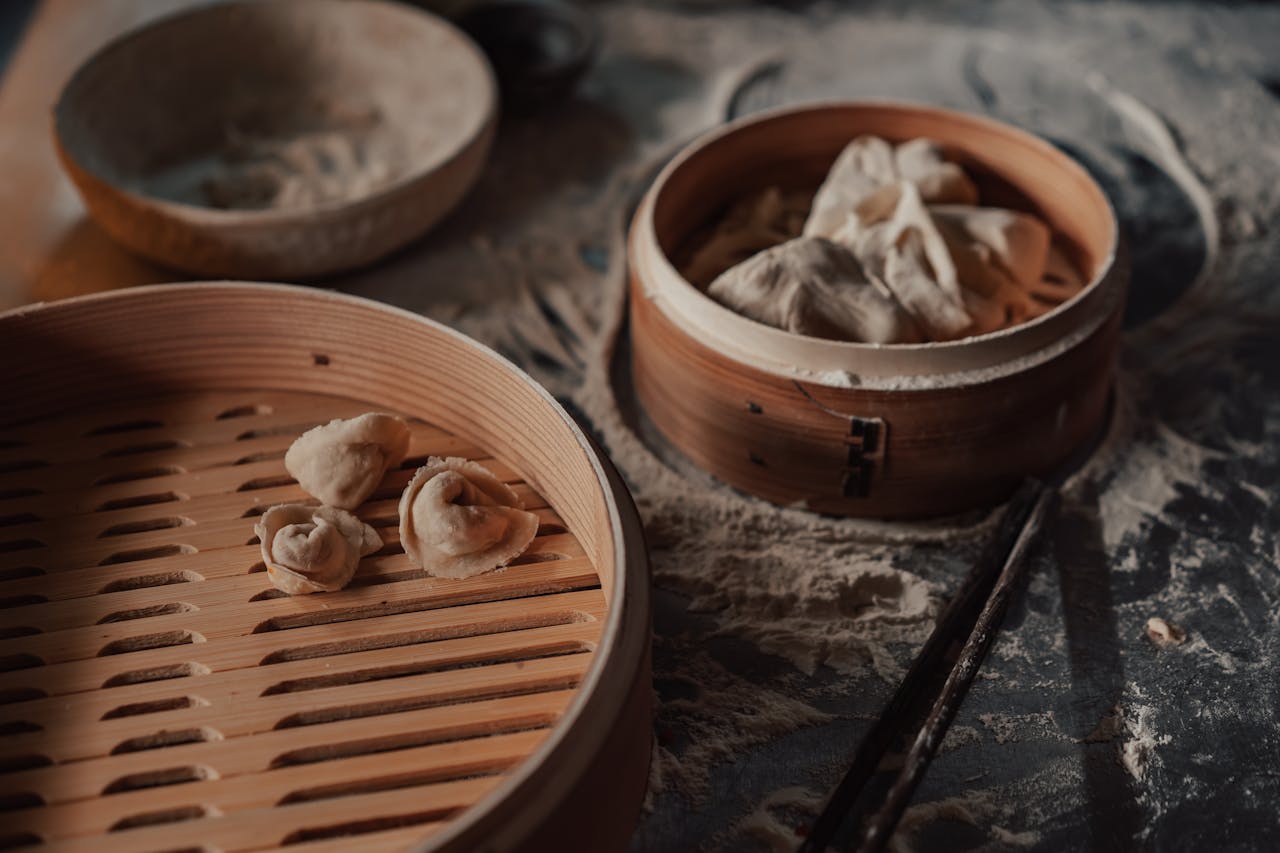
Beginner-Friendly Classes with Step-by-Step Guidance
Starting with the basics? No problem. Many Thai cooking classes are designed with beginners in mind, offering detailed instructions that break down each step. It’s all about building confidence in the kitchen. From learning how to balance sweet, sour, salty, and spicy flavors to mastering simple dishes like Pad Thai or Tom Yum soup, these classes ensure that even first-timers can create something delicious. You’ll likely leave with a cookbook to help you recreate these dishes at home, making it easier to host your own Thai food night.
Advanced Techniques for Authentic Thai Flavors
For those who already know their way around a wok, advanced classes dive deeper into the nuances of Thai cuisine. Expect to experiment with aromatic herbs and spices, perfecting complex dishes like green curry or Massaman curry. These sessions often include tips on presentation and plating, turning your creations into works of art. It’s a chance to refine your skills and bring authentic Thai flavors to your table at a professional level.
Cooking Thai Dishes for Special Dietary Needs
Thai cuisine is incredibly versatile, making it ideal for adapting to dietary restrictions. Whether you’re vegan, gluten-free, or allergic to certain ingredients, specialized classes can teach you how to modify traditional recipes without losing flavor. Imagine whipping up a dairy-free coconut soup or a vegetarian Pad See Ew that tastes just as amazing as the original. These classes focus on ingredient substitutions and highlight the flexibility of Thai cooking.
No matter your skill level, Thai cooking classes are about more than just making food—they’re a way to connect with the culture and traditions of Thailand. The experience is as enriching as the dishes themselves.
The Cultural Significance of Thai Cooking Classes
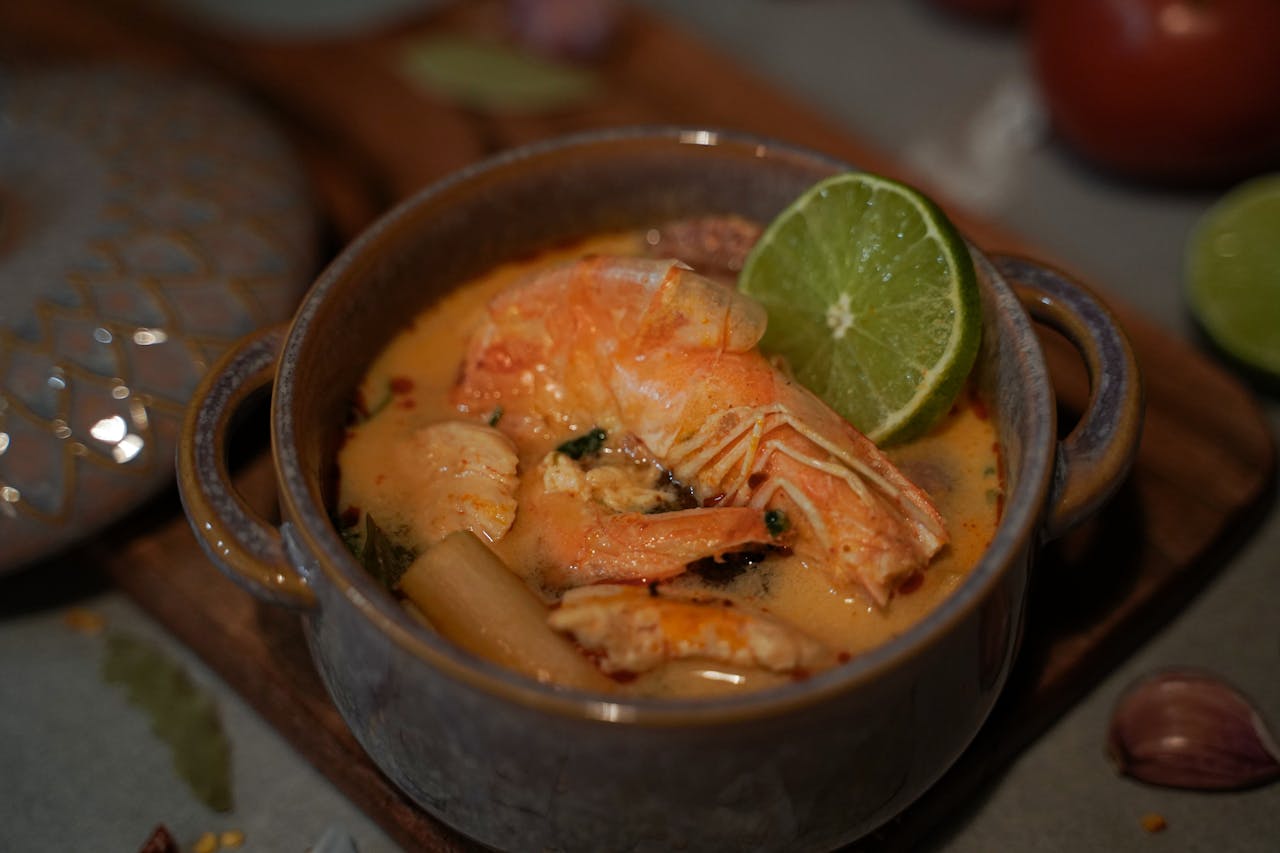
Understanding Thai Ingredients and Spices
Thai cuisine is a celebration of balance—sweet, sour, salty, and spicy flavors all coming together. A big part of this balance comes from the unique ingredients and spices used. Think lemongrass, galangal, kaffir lime leaves, and fish sauce. In a Thai cooking class, you’ll often start by learning about these core components. Knowing how to select and use them correctly is key to authentic Thai cooking. For example, not all chilies are created equal, and understanding their heat levels can make or break a dish. This knowledge not only helps in cooking but also deepens your appreciation of Thai food.
The Role of Food in Thai Traditions
Food in Thailand is more than just sustenance—it’s a way of life. Meals are often shared, symbolizing unity and togetherness. During festivals or special occasions, certain dishes take center stage. For instance, khao chae, a chilled rice dish, is a must during Songkran (Thai New Year). Cooking classes often touch on these cultural connections, giving you a peek into how food ties into Thai traditions and daily life. It’s fascinating to see how even a simple dish like som tam (papaya salad) can carry so much cultural weight.
Market Visits as a Cultural Experience
Before you even start cooking, many classes include a trip to the local market. This isn’t just about buying ingredients; it’s an experience in itself. You’ll hear the chatter of vendors, see vibrant piles of fresh produce, and maybe even try your hand at haggling. Markets are where you’ll find the freshest herbs and spices, and they’re also a hub of community life. Walking through one gives you a real sense of how locals live and eat. It’s a sensory overload, but in the best way possible.
“Taking a Thai cooking class isn’t just about learning recipes—it’s about immersing yourself in a culture where food is a cornerstone of life.”
Thai cooking classes are more than just about making delicious food; they are a way to connect with Thai culture. When you learn to cook traditional dishes, you also learn about the history and customs of Thailand. These classes can be a fun way to meet new people and share experiences. To make your experience even smoother, consider using a Thailand eSIM for easy access to maps, translations, and local recommendations while exploring.
Wrapping It Up
Taking a Thai cooking class isn’t just about learning recipes—it’s about diving into the heart of Thai culture. Whether you’re mastering the art of Pad Thai or perfecting a green curry, these classes offer a hands-on way to connect with the flavors and traditions of Thailand. Plus, you’ll leave with more than just full bellies; you’ll have skills and memories to take home. So, if you’re planning a trip to Thailand, why not spice it up with a cooking class? It’s an experience that’s as rewarding as it is delicious.








